Lighting up the holidays; Students reflect on their Diwali traditions
Photo courtesy of Nidhi Pejathya
Sophomore Nidhi Pejathya lights candles to welcome guests on Diwali. An urli is a traditional Indian decoration filled with water, flowers and candles that are lit during the holiday. “Diwali is the festival of lights, so we greet the goddess Lakshmi with [them]. In our culture, a huge saying is ‘treat your guests like god,’ so we do the same for them as we would for the goddess,” Pejathya said.
October 27, 2022
Decorating the house, cooking food and getting dressed up, Hindu students prepare to celebrate Diwali, the festival of lights.
Diwali is a major Indian holiday that typically falls around late autumn [Oct. 24, this year] and represents the triumph of light over dark. The festival is a five-day celebration that includes colorful decorations, fireworks, rows of lit candles and lamps, traditional clothing and lots of food.
“It’s really fun to celebrate [Diwali] with my family,” junior Swati Kumar said. “I love the food that we make and the culture overall. Dressing up and doing fireworks is fun.”
As well as putting up decorations and wearing traditional clothing, it is customary to cook and eat a plethora of food. Kumar likes to spend time with her mom shopping for food and preparing the perfect meal.
“Typically, we get sweets such as laddus and gulab jamuns. I enjoy making halwa with my mom, which is made out of milk, almonds and butter. For dinner on Diwali, we make a lot of food, such as different vegetables, curries and a variety of puddings. I overall really enjoy cherishing our meal with my family,” Kumar said.
During Diwali, it is tradition to embellish your house with festive decor. It’s most common to decorate with candles and lamps symbolizing the light-over-dark aspect of the holiday. Though some decorations are bought, sophomore Nidhi Pejathaya’s family decorates with handmade items.
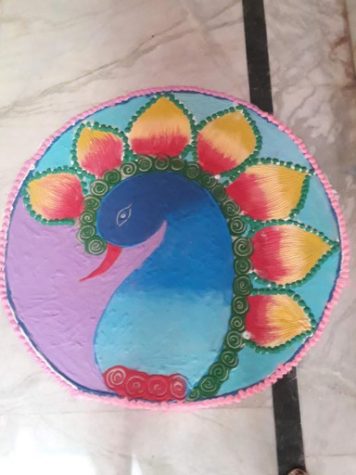
is used to welcome the Goddess Lakshmi.
(Photo courtesy of Swati Kumar)
“My mom makes all her decorations by hand, and decorates the entire house. Diwali is a heavily religiously tied event, so my mom sets up an altar and l make decorations for the backdrop and the table it’s on. They usually consist of traditional colors such as red, orange and green. We always used fake marigold flowers along with small oil lamps called diyas. We also make a Toran for our front door with felt, although it’s traditionally made with Peepal or Mango Leaves. A Toran is supposed to welcome Goddess Laxmi into your home since Diwali is to celebrate Laxmi,” Pejathaya said.
Many people who celebrate Diwali are reminiscent of spending the holiday with their friends and family. Pejathaya holds the memories of celebrating with her childhood neighbors close to her heart.
“Before we moved to St. Louis, our neighborhood was predominantly white. We would call all of the kids, because they were all around our age, to come and celebrate it with us,” Pejathaya said. “It was like a huge thing for me because it’s not part of their culture, and it’s not something they usually do. They would all come over and burst firecrackers and eat our sweets.”
While some gather in their homes for Diwali, others, such as junior Chetan Uppara, gather at the temple for religious and social purposes.
“We go to the temple to [pray] and talk to the priests for blessings. Then, my family and 20 others, make food for all the people who come to the temple, approximately 3,000 people. Afterward, we go outside and light sparklers, and there is a huge firework show,” Uppara said.
As well as being a time of light and celebration, the holiday brings clarity and focus to those who celebrate it.
“Diwali means a lot to my family and me, primarily because of the happiness surrounding [the festival],” Uppara said. “There’s a feeling you have in your heart that some entity is helping you and making you more self-confident, and it helps me focus on life.”
This story was originally published on Pathfinder on October 25, 2022.


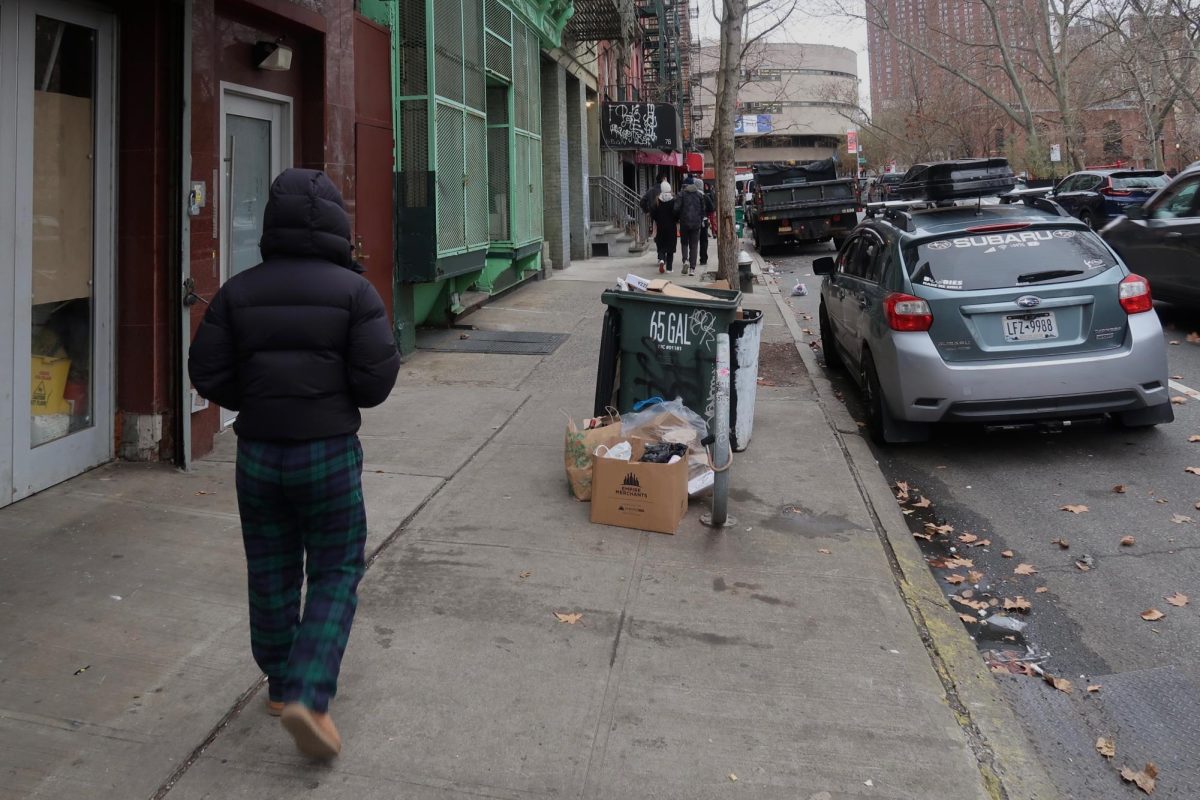
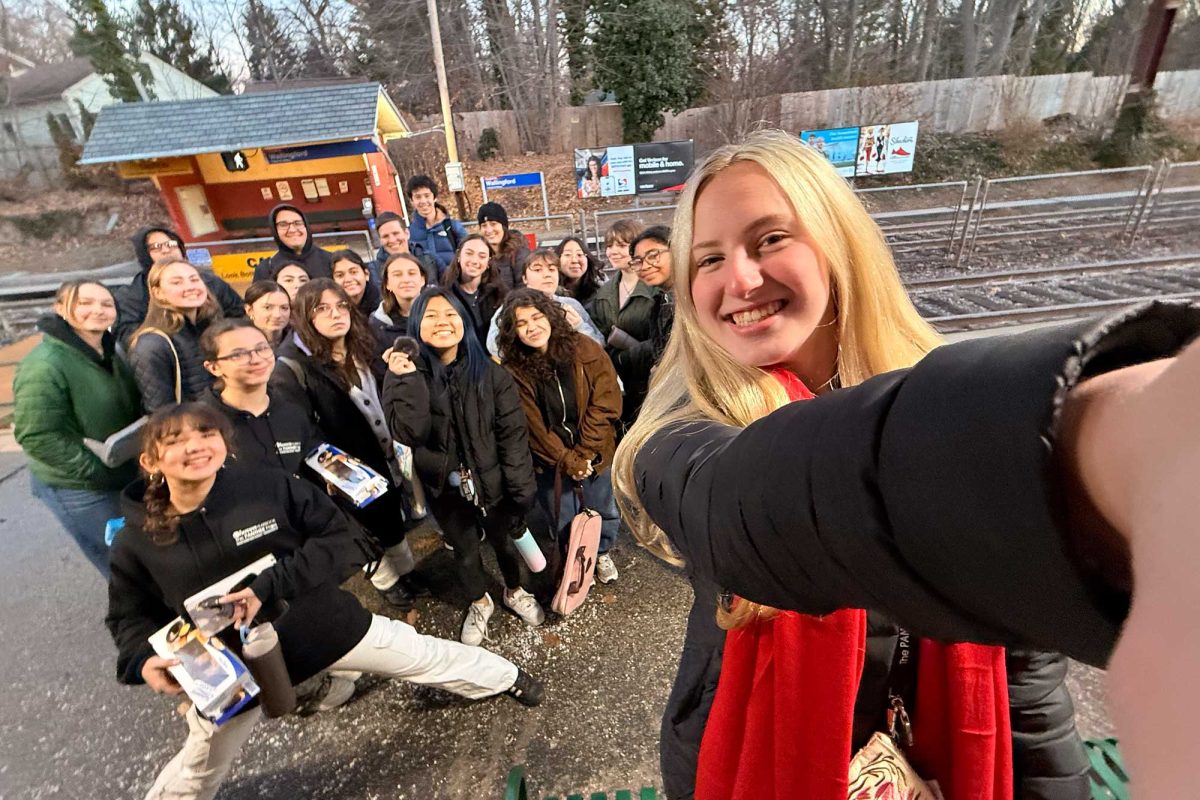



![Delicately placing the string to form the shape of a cornucopia, seniors Haley Burton and Avery Nelson create the November arrangement for the Flower of the Month Club. This club is led by Advanced Floral Design Students and provides a monthly arrangement to community members who subscribe to receive them. “I think flower of the month club is a really impactful way to show your loved ones ‘hey I really care about you,’ or even if they’re just for yourself, they’re a little pick-me-up throughout the month that [say] ‘I’m doing ok, and these flowers make my day a little bit brighter,” Nelson said. “I like giving people flowers because people value the flowers more and they value themselves more.”](https://bestofsno.com/wp-content/uploads/2025/01/Ava-Holmes-3-edit.jpg)




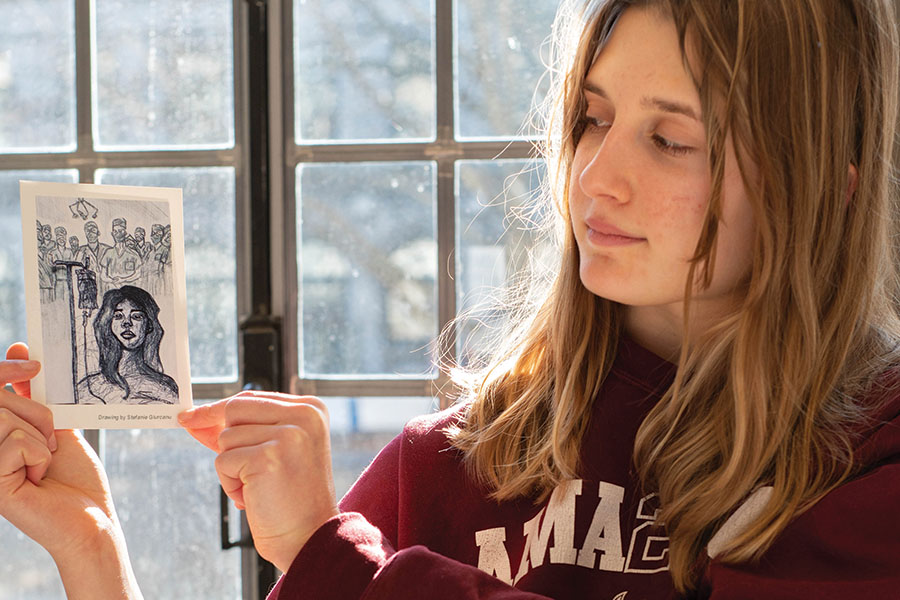
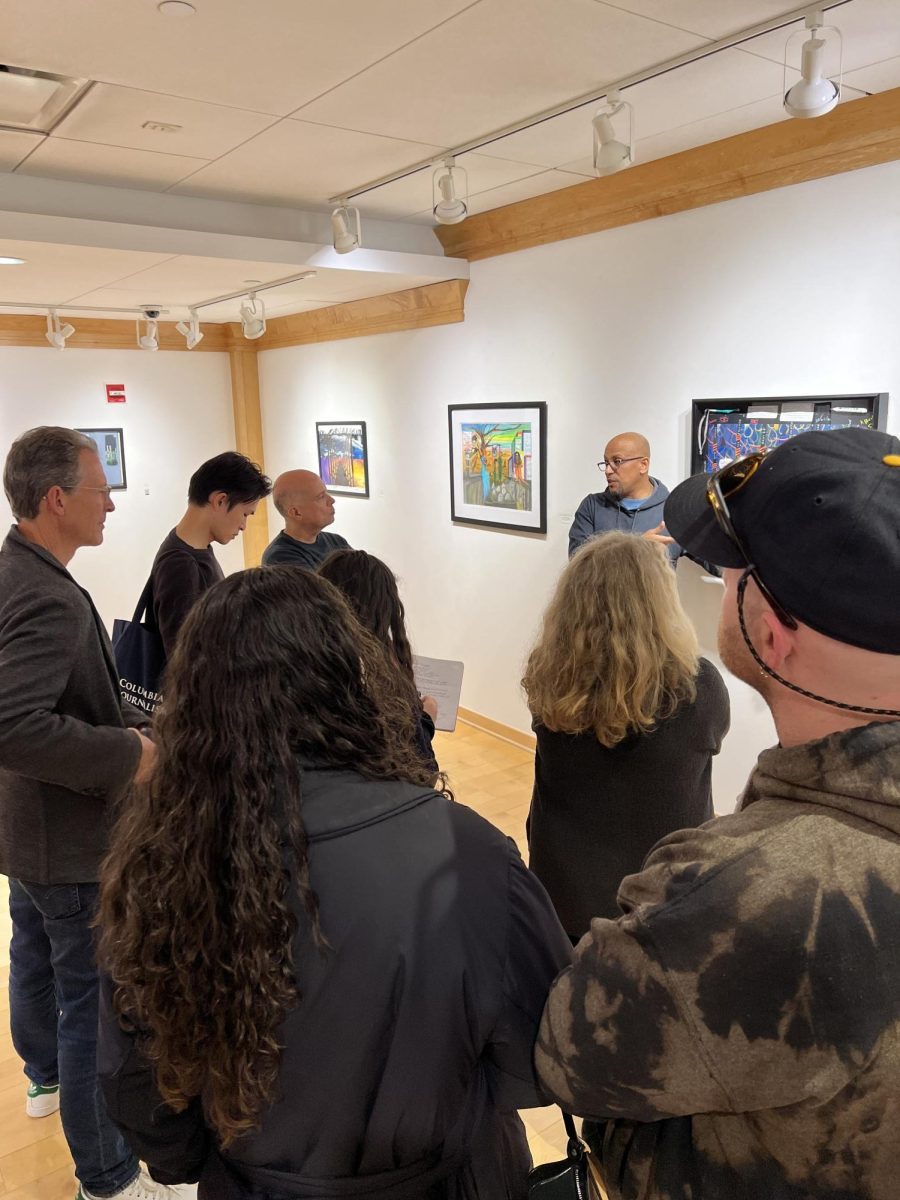
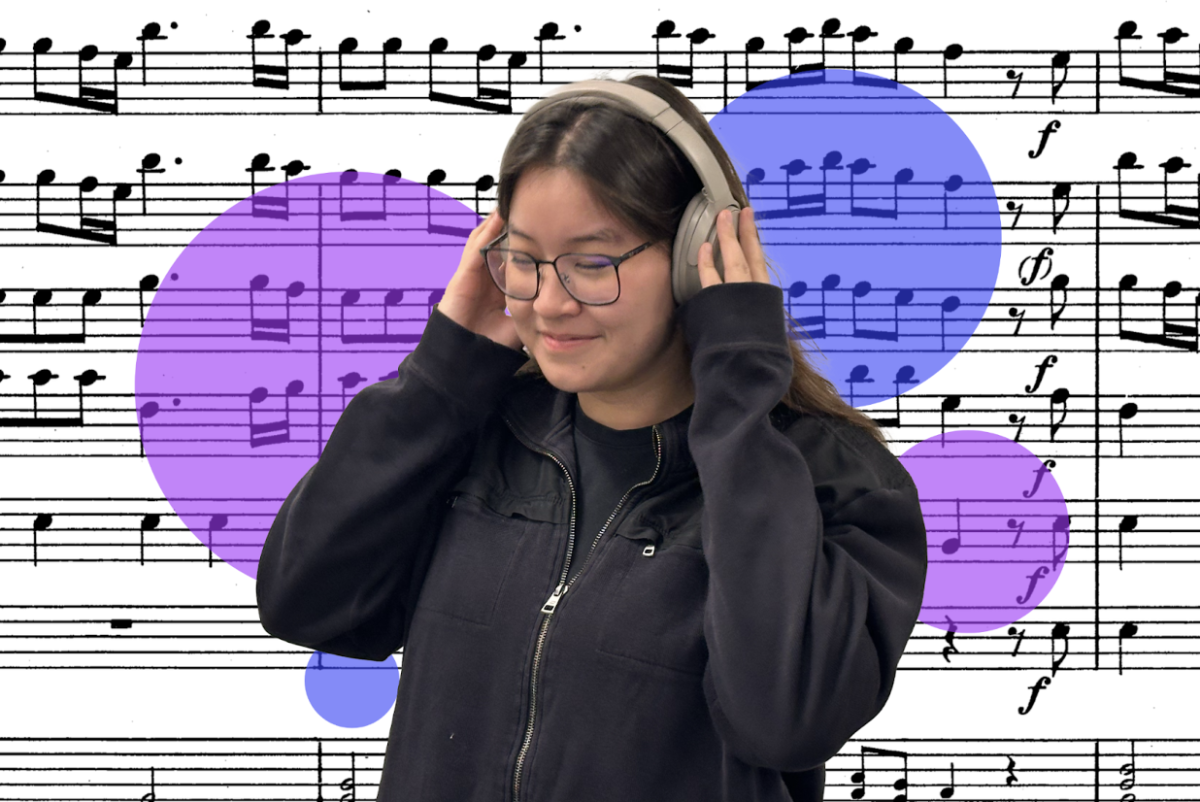
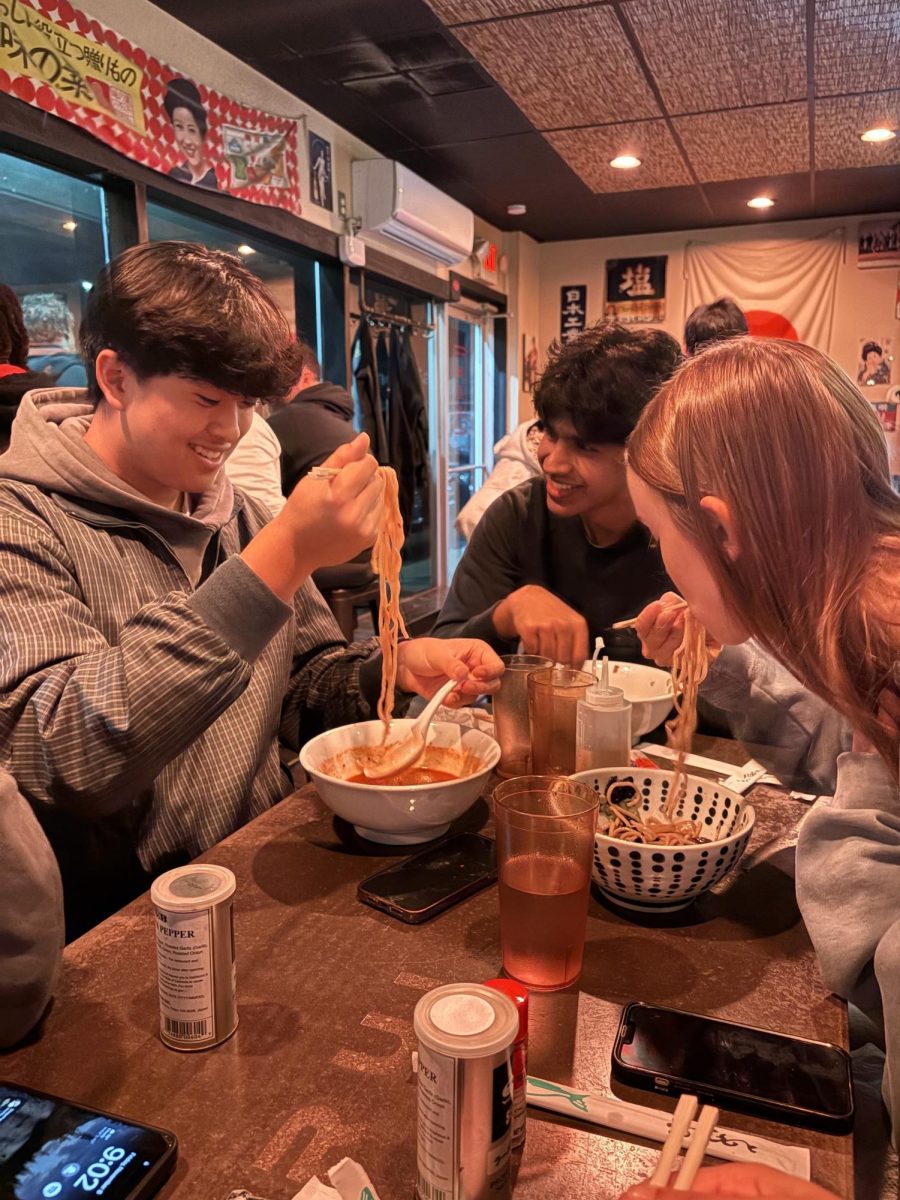


![Within the U.S., the busiest shopping period of the year is Cyber Week, the time from Thanksgiving through Black Friday and Cyber Monday. This year, shoppers spent 3.3 billion on Cyber Monday, which is a 7.3% year-over-year increase from 2023. “When I was younger, I would always be out with my mom getting Christmas gifts or just shopping in general. Now, as she has gotten older, I've noticed [that almost] every day, I'll open the front door and there's three packages that my mom has ordered. Part of that is she just doesn't always have the time to go to a store for 30 minutes to an hour, but the other part is when she gets bored, she has easy access to [shopping],” junior Grace Garetson said.](https://bestofsno.com/wp-content/uploads/2025/01/DSC_0249.JPG-1200x801.jpg)


![French teacher Marieme Toure serves a plate of the Senegalese food she prepared for her AP French Language and Culture class, to senior Faiza Syed. “I never had Senegalese food before,” Syed said. “I thought it was so cool that she was able to bring a part of her culture [and] background to us.”](https://bestofsno.com/wp-content/uploads/2025/01/IMG_0798-1200x906.jpeg)





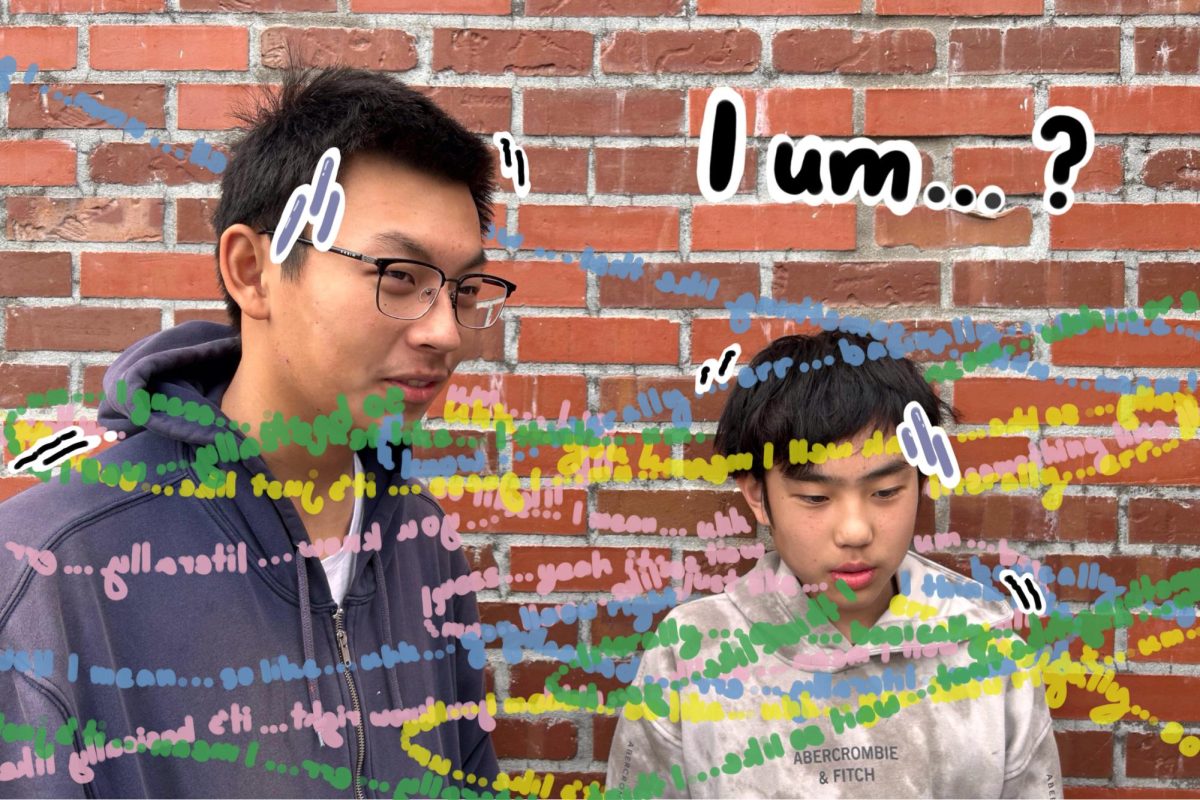
![NEW CHALLENGE, NEW TEAM MEMBERS: Every season, VEX creates a new game that robotics team members are faced with and have to build a robot to compete in. This year’s game forces students to create a robot that is able to stack rings onto mobile goals in order to score points. The change in games each season is something that robotics teacher Audrea Moyers appreciates.
“One of the things that I like about VEX is that they have a new problem to solve every year,” she said. ¨Even though the equipment’s the same, they have to analyze the game, and they have to come up with solutions that are unique that year. They are using their knowledge from prior years, but they have to kind of redesign a problem.”
As returning teams were faced a new game, some new teams and members had to adapt to a uncommon playing field and game.
“Three of our four teams were competing for the first time this year, and they had very different experiences match to match, so I think they learned a lot,¨ she said. ¨It’s hard just watching a video online to know how it’s actually going to be in person, so they all learned a lot about what gameplay is like, how to work with an alliance partner [and] how to adapt during the day to changes.”](https://bestofsno.com/wp-content/uploads/2024/12/IMG_9283-1-1200x800.jpg)

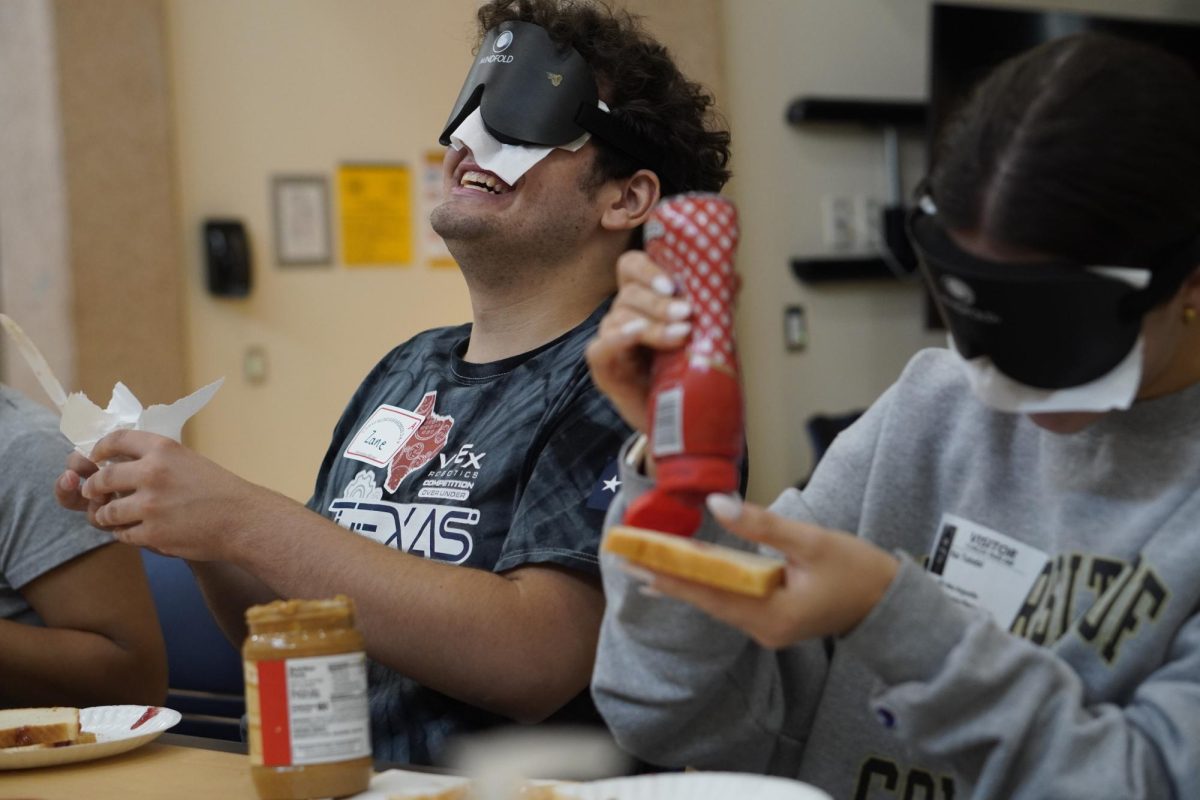

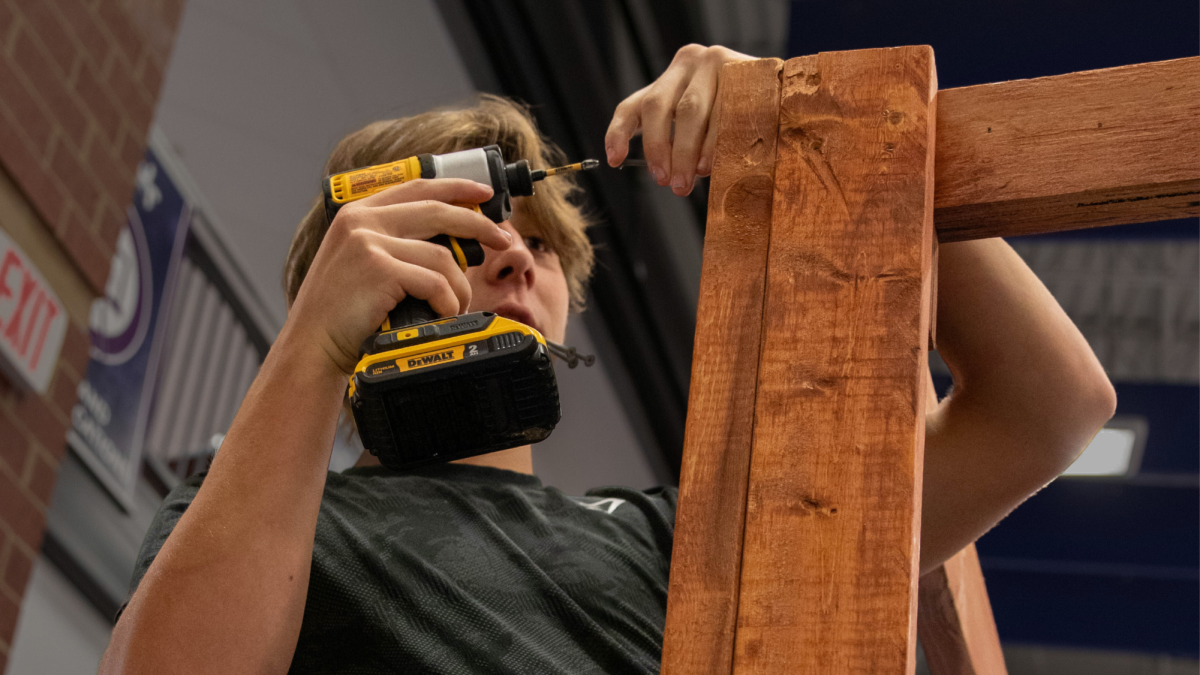
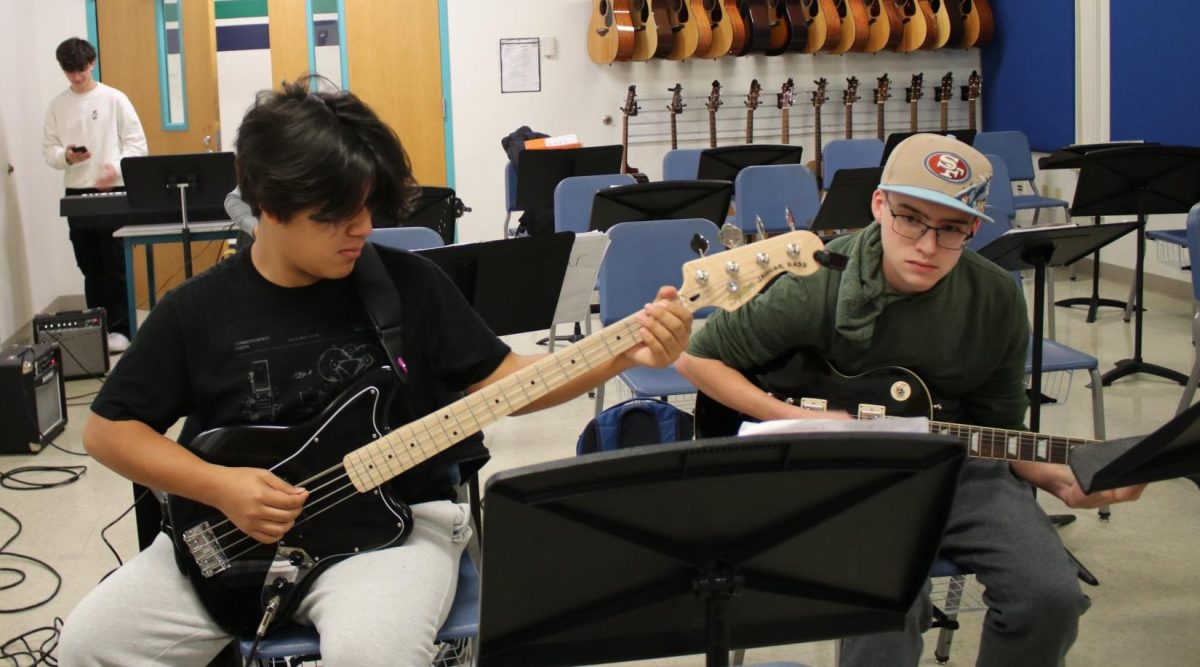

![Sophomore Nidhi Pejathya lights candles to welcome guests on Diwali. An urli is a traditional Indian decoration filled with water, flowers and candles that are lit during the holiday. “Diwali is the festival of lights, so we greet the goddess Lakshmi with [them]. In our culture, a huge saying is ‘treat your guests like god,’ so we do the same for them as we would for the goddess,” Pejathya said.](https://bestofsno.com/wp-content/uploads/2022/10/Nidhi-FEAT-900x675.jpg)
